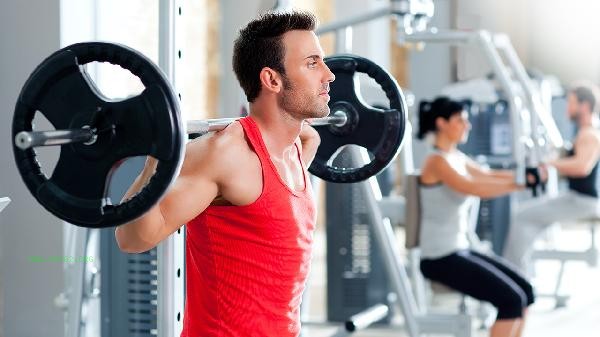The fruits suitable for weight loss after fitness mainly include apples, blueberries, pomelos, strawberries, and kiwis. These fruits are low in calories and rich in dietary fiber, which helps increase satiety and promote metabolism.

1. Apples
Apples are rich in pectin and dietary fiber, which can slow down gastric emptying and stabilize blood sugar. Eating apples after exercising can help control appetite, and their natural fructose can quickly replenish liver glycogen consumed during exercise. The ursolic acid component in apple peels has also been found to potentially help reduce visceral fat accumulation.
2. Blueberries
Blueberries are typical low glycemic index fruits, containing only 57 calories per 100 grams. The anthocyanins it contains have anti-inflammatory effects and can alleviate muscle micro injuries after exercise. Polyphenols in blueberries can regulate the expression of genes related to fat metabolism, which has potential benefits in reducing abdominal fat.
3. Pomelo
Pomelo is rich in naringin, which promotes fat breakdown and can activate lipase activity in the liver. Half a grapefruit contains about 53 calories, and its high moisture content helps to replenish water after exercise. Research has found that the ketone component in grapefruit may assist in weight control by regulating insulin sensitivity.

4. Strawberries
Strawberries contain only 32 calories per 100 grams, and the tannic acid they contain can inhibit adipocyte differentiation. Eating strawberries after exercise can supplement vitamin C and promote collagen synthesis to repair muscle tissue. The potassium element in strawberries can also help balance electrolytes after exercise.
5. Kiwifruit
Kiwifruit ranks among the top fruits in terms of dietary fiber content, which can effectively delay carbohydrate absorption. Its unique kiwi alkaloids can promote protein digestion and help with muscle recovery after exercise. Two kiwis can meet daily vitamin C needs and help with antioxidant effects after exercise.

When choosing fruits after exercising, it is important to control the single intake within 200 grams to avoid excessive fructose conversion into fat. The optimal consumption time is within 30 minutes after exercise, when muscles have the highest efficiency in absorbing nutrients. It is recommended to pair it with a suitable amount of high-quality protein such as sugar free yogurt or chicken protein, which can promote muscle synthesis and prolong satiety time. Different fruits can be rotated for consumption to ensure nutritional diversity and avoid potential nutritional imbalances caused by long-term single intake. People with weak gastrointestinal function should avoid consuming acidic fruits on an empty stomach. They can first eat a small amount of whole wheat bread before consuming fruits.







Comments (0)
Leave a Comment
No comments yet
Be the first to share your thoughts!